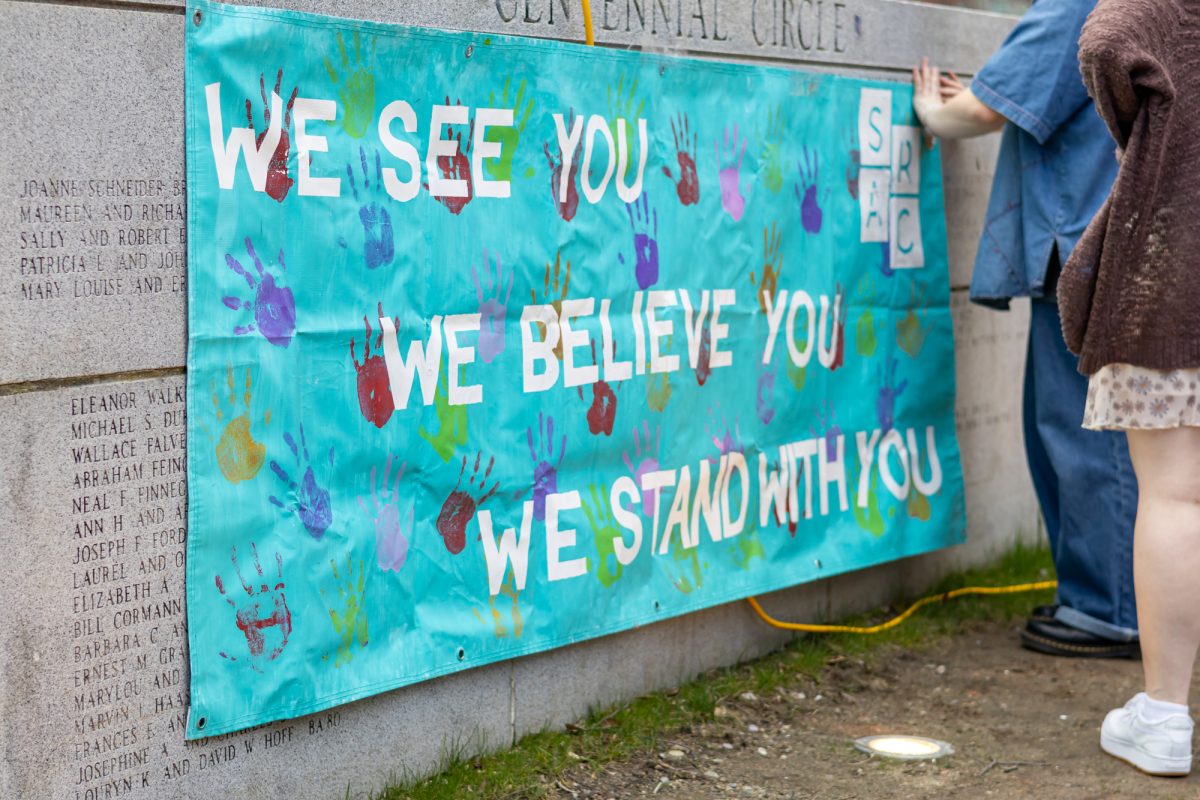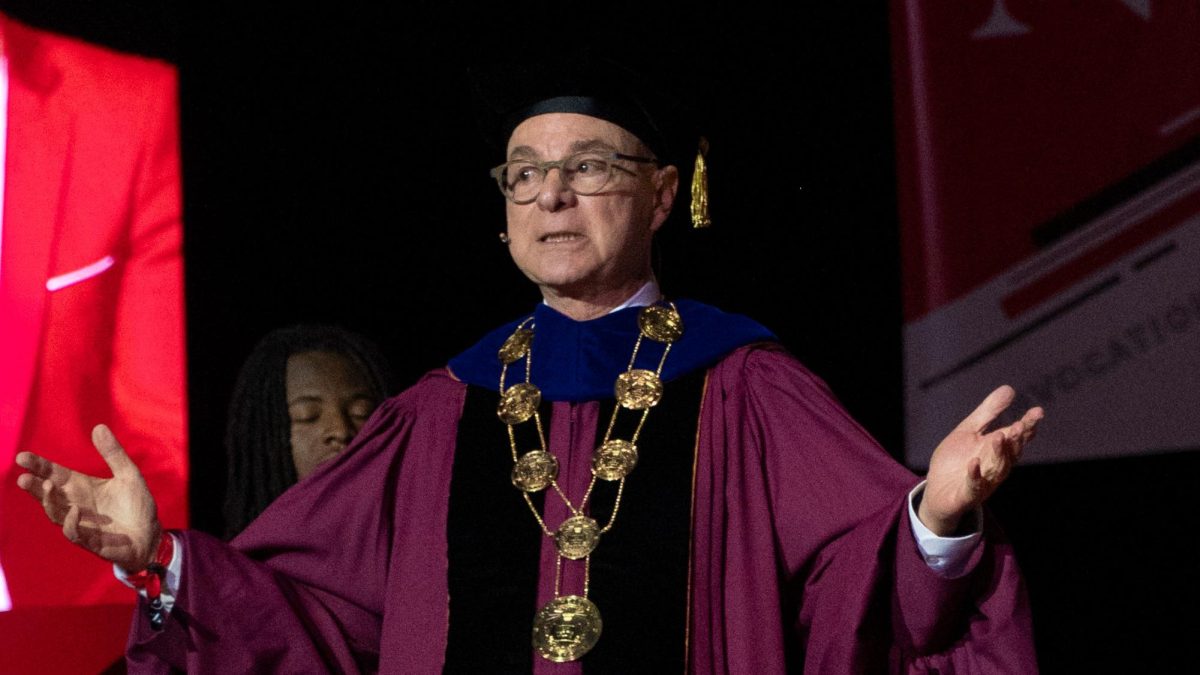Julie Brady’s shift begins at midnight. Until 3 a.m. she will swipe the cards of students heading to the Marino Center for a late night workout.
Thanks to the new mandatory Campus Recreation Fee, the Marino Center can afford to stay open 24 hours a day, seven days a week. Students can now be found on a regular basis working out while others rest for their 8 a.m. classes.
Between midnight and 2 a.m. Monday night, 48 people had already taken advantage of the new operating hours, Brady said.
“There’s more people than I expected,” said Brady, a freshman undecided major and work-study. “They seem to come in clusters, like four or five at a time.”
The early morning hours may have some students nervous about security issues, but Associate Director of Public Safety James Ferrier said new security measures leave no cause for concern.
“We worked with the Physical Plant Department and the Marino Center staff to design an access control system that ensures only properly authorized people get into the building after midnight,” Ferrier said. “The Marino Center staff are operating that system and police officers are stopping in to spot check during the overnight hours, but it’s gone well in the first week or so the facility has been open and there haven’t been any security-related problems.”
Ferrier said the doors to the facility are locked at midnight, and students who wish to use the equipment must go to the side door on Forsyth Street and flash their Husky Card to a staff member at a desk just inside the doors. The students then must take their IDs and swipe them through a card swipe, just as they would do in a residence hall. Once the ID is proved valid, the student is admitted.
So far, the only reported incident, Ferrier said, was when an allegedly intoxicated student entered the Marino Center and was asked to leave. The student complied. Ferrier said the Marino Center staff is constantly on the watch for students who appear to be under the influence of alcohol.
“It’s in the procedures of the Marino Center, if there appears to be a person carrying or under the influence of alcohol, the staff will call us if the person does not leave under request,” Ferrier said. “[So far] the staff hasn’t had any reason to call the police for any unruly people; [the system] has been working well.”
A security detail was requested to be stationed at the Marino Center, said Beth Griffith, assistant director of campus recreation, but the request was not granted.
“We were not able to get [a security detail]. Campus police will walk through as part of their beat. As an alumnus, I’m more concerned about the safety of students. Hopefully we will work it out to get more campus police here,” she said.
Griffith said she is concerned more with safety than the money that will go towards the facility. However, students who have no intention of using the facility are still required to pay the fee.
The fee requires all students to pay $45 per semester. The incremental money raised from the fee was at least $500,000, said Larry Mucciolo, senior vice president for administration and finance, and it will go to several different funds.
Mucciolo said about a third of the money goes to the Marino Center, a third goes to the development and expansion of club sports and a third is to be set aside for the proposed stadium in Columbus Lot. Although the largest facility that will benefit from the fee will not be completed for at least four more years, Mucciolo said the fee is well worth the students’ money.
“Most of the money [from the fee] goes to the students paying the fee,” Mucciolo said. “Every university has built a facility for the future when current student would be paying for it.”
Other university officials sided with Mucciolo and agreed that current students will reap the benefits of the fee sooner rather than later.
“We’re trying to offer as many different things as possible,” said Vice President for Student Affairs Ed Klotzbier.
Other non-traditional sports and activities, such as aquatics, extreme sports, cooking, music therapy, medical response and martial arts will also receive funding. Students who choose not to use the Marino Center may benefit from the fee in other ways.
However, some students said they still favor the Marino Center as one of the better benefits resulting from the fee.
“[The mandatory fee] is a real good thing,” said Brian Cote, a middler criminal justice major, who plans on using the late-night gym three to four times a week. “It’s great, because I work 4 p.m. to midnight at the FleetCenter, and I can just come here after work.”
– News staff writer Michael Naughton conrtibuted to this report.








